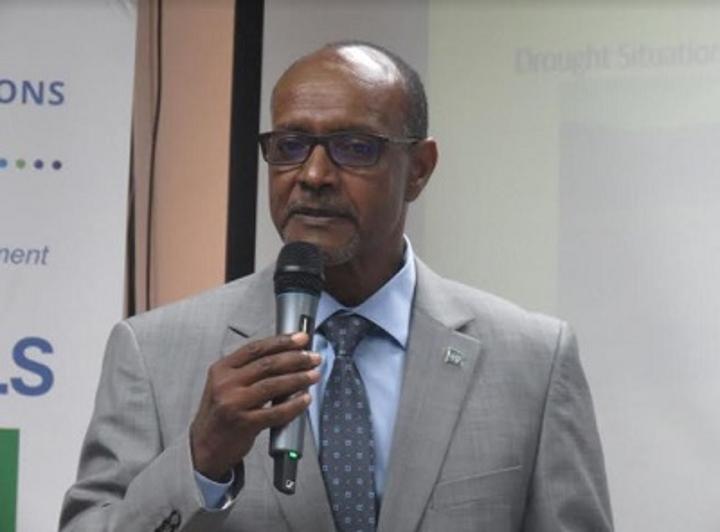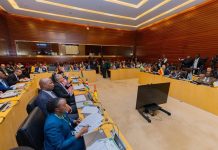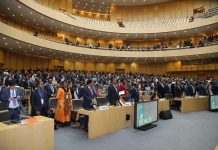Africa-Press – Lesotho. Due to the coronavirus (Covid-19) crisis,
the population group of 15-24 years of age is exposed to high-risk behavior, which may lead to early and unwanted pregnancies and child marriage as a result
of the lockdown measures in place. This forms part of the socio-economic impacts of Covid-19 as per the recent Lesotho Covid-19 report by the United Nations (UN).
According to the report, Lesotho already has challenges of inadequate medical staff needed to support the increased demand due to the Covid-19 pandemic including inadequate isolation
units, intensive care units, infection control materials, medicines, and medical supplies across the country. In addition, it says the national lockdown has
impacted on community-based outreach services for health and HIV services that have been halted, thereby further increasing health demands especially among
adolescents and young people. The report goes to state that HIV prevalence is high in Lesotho, with the highest incidents being among adolescents and young
people, estimated at an average of 38% for both males and females aged 15-24. “Due to the Covid-19 crisis, this population group is exposed to high-risk behavior
which may lead to early and unwanted pregnancies and child marriage as a result of the lockdown measures in place. The risk of contracting HIV and unplanned
pregnancy is heightened by the absence of supportive services and educational programmes as these have not been considered critical due to the urgent need to
address Covid-19. This threatens to escalate the teenage pregnancy prevalence which has increased from 88.16 births per 1,000 girls to 93 between 2010 and
2017,” stated the report. UN further states that Global Modelling based on Sub-Saharan Africa (Stover et al),
shows that if continuity of HIV services, including preventive community outreach services are interrupted during the Covid-19 pandemic, HIV deaths are
likely to double or triple in 2020. This is especially concerning for adolescents and young people in Lesotho—who have the poorest HIV outcomes in the country and continue to face multiple overlapping risks.
In response to these challenges the report says the World Health Organization (WHO) supported the government with the development of Covid-19 Case Management
Guidelines as well as assistance with the development of the National Covid-19 plan. To build the capacity of health personnel, WHO conducted various training
on case management, Covid-19 risk communication and community management. WHO also provided PPEs and other delivery packs in selected health facilities to
reduce the spread of the Covid-19. “Being a member of the National Technical Working Group, the UN Programme on HIV/AIDS (UNAIDS) is providing technical guidance
to Ministry of Health (MoH) on how to set up the system and guidance for surveillance of Covid-19 cases, suspected cases, and contact tracing. The group has designed the system and tools for tracking individuals who have been
screened (in facilities and border posts); in quarantine (self and government-sponsored facilities); suspected cases (with symptoms) and contact tracing for suspected cases (while waiting for lab results).
Also, UNAIDS has partnered with the National Institute for Communicable Diseases (NICD) in South Africa (SA) for support with the modeling tools they are using as these will be
more relevant for Lesotho. ” Continues the report Another noted and related challenge is that of education as the report states that the declaration of a national emergency on March 18th 2020 and, closing of all
schools (including Early Childhood Development centers) affected approximately 511,000 learners. It says most learners are in rural areas and on average 4.3%
of the learners affected by the closure have a disability. Therefore, school closures and lockdowns have disrupted children’s routine and social support
systems. “ Children and families who are already vulnerable to socio-economic exclusion are particularly vulnerable to protection risks including increased risks of
sexual exploitation, need for mental health and psychosocial support, neglect, child abuse, and domestic violence. The population of Lesotho is mostly rural, and many families rely on herding cattle
and farming for their survival and/or income. The participation of boys in education, particularly in rural mountain areas is the lowest of any group.
It is expected that this negative trend may be exacerbated by Covid-19 given the higher opportunity cost of going to school following the economic shock as a
result of the crisis,” it states With support from the UN International Children’s Fund (UNICEF), the report says the Ministry of Education and Training (MoET) has implemented continuity of
learning programmes through radio and television since April 2020. UNICEF has also supported the Ministry of Education with the development of Covid-19 communication materials for learners.
For More News And Analysis About Lesotho Follow Africa-Press






